Importing from China seems complex. Worried about scams, quality, and delays? This guide simplifies your stainless steel bottle import process.
To successfully import stainless steel insulated bottles from China, focus on finding reliable suppliers. Verify quality through inspections. Understand certifications. Clarify logistics and payment terms. Maintain clear communication throughout the process. This approach will help you get good products.
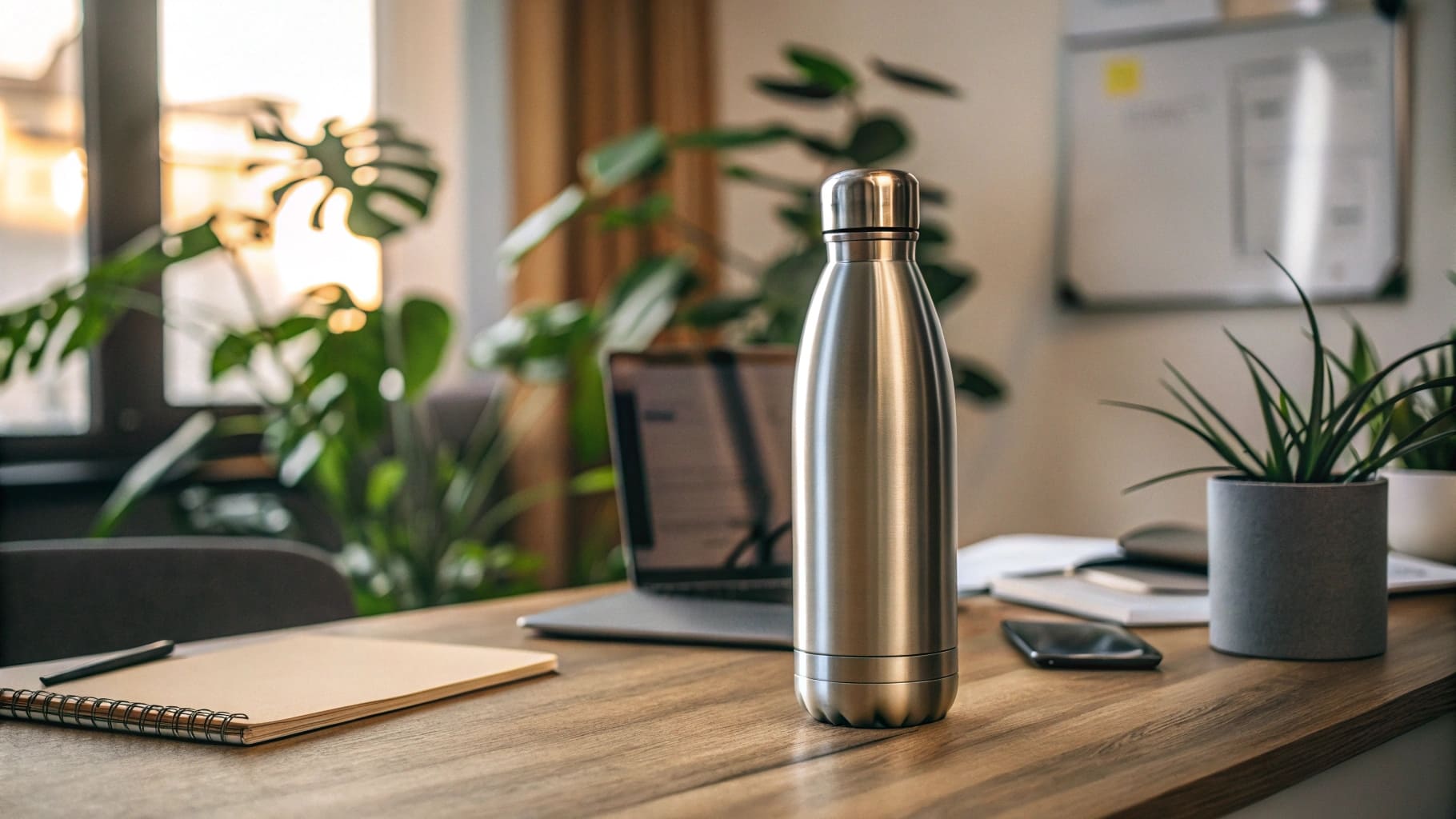
Importing drinkware from China can feel like a big step, but it does not have to be a headache. Many businesses, just like yours, have found great success. Let's break down how you can make this process smooth and profitable for your company. We want you to feel confident.
How can you find trustworthy stainless steel bottle suppliers in China?
Finding good suppliers is tough. Are you wasting time on unreliable factories? Discover effective strategies to connect with the best Chinese bottle manufacturers right here.
To find trustworthy suppliers, use online B2B platforms1 like Alibaba. Attend major trade shows such as the Canton Fair. Also, use Google searches. Always check potential partners carefully before you commit.
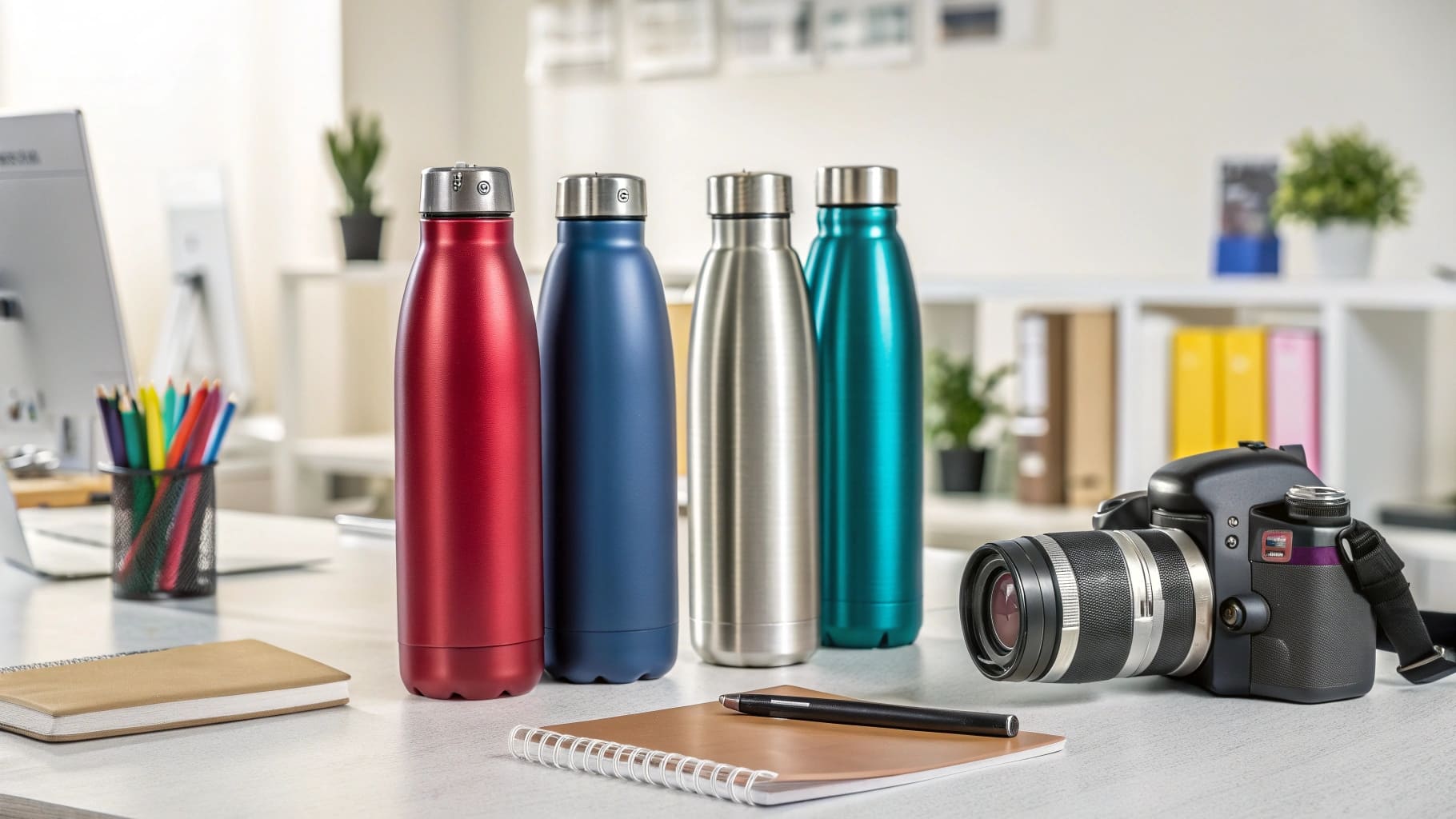
Finding the right supplier is probably the most important step. I remember when I first started Icobottle, I spent many hours researching. For someone like Mark in Canada, who uses Google and attends trade shows, the way to find suppliers is similar.
Effective Supplier Sourcing Strategies
Here are some ways to find good suppliers:
- Online B2B Platforms:
- Websites like Alibaba and Made-in-China.com are good places to start. Look for "Gold Suppliers" or verified members. But remember, this is just one thing to check. Also, look at their company profile, how long they have been in business, and what customers say about them.
- Trade Shows:
- Events like the Canton Fair2 in Guangzhou or the East China Fair in Shanghai are great. You can meet suppliers in person there. You can see product samples and get a feel for how professional they are. Mark attends these, which is smart. It helps him talk directly to suppliers.
- Also, look for shows that focus on housewares or promotional products.
- Google Search:
- Be specific with your search words. For example, try "stainless steel insulated bottle manufacturer China" or "wholesale hip flasks China." Look past the first page of results. Sometimes, good suppliers are not at the very top.
- Referrals:
- Ask people you know if they have trusted contacts. This can be very helpful.
Vetting Potential Suppliers
Once you have a short list of suppliers, it is time to learn more about them.
- Request Samples: You must do this. Check the quality yourself.
- Ask for Business Licenses and Certifications: Make sure they are a real business.
- Factory Audit: If you can, visit the factory or have a third-party company do an audit. This is very important for someone like Mark, who cares a lot about quality.
- Communication: See how quickly and professionally they reply. This was a problem for Mark before, so watch this from the start.
I once had a potential client who found us through a Google search. They were unsure at first because they had a bad experience with another supplier. We showed them all our documents. We sent samples quickly. We even did a factory tour by video call. Being open like that built their trust.
What's the best way to ensure top quality when importing insulated bottles?
Are you worried about receiving substandard bottles? Poor quality can ruin your brand's reputation. Implement these quality control steps for consistent excellence from Chinese suppliers.
Ensure top quality by giving detailed product specifications. Ask for pre-production samples for approval. Arrange third-party pre-shipment inspections. Clear communication about your quality standards is also very important.
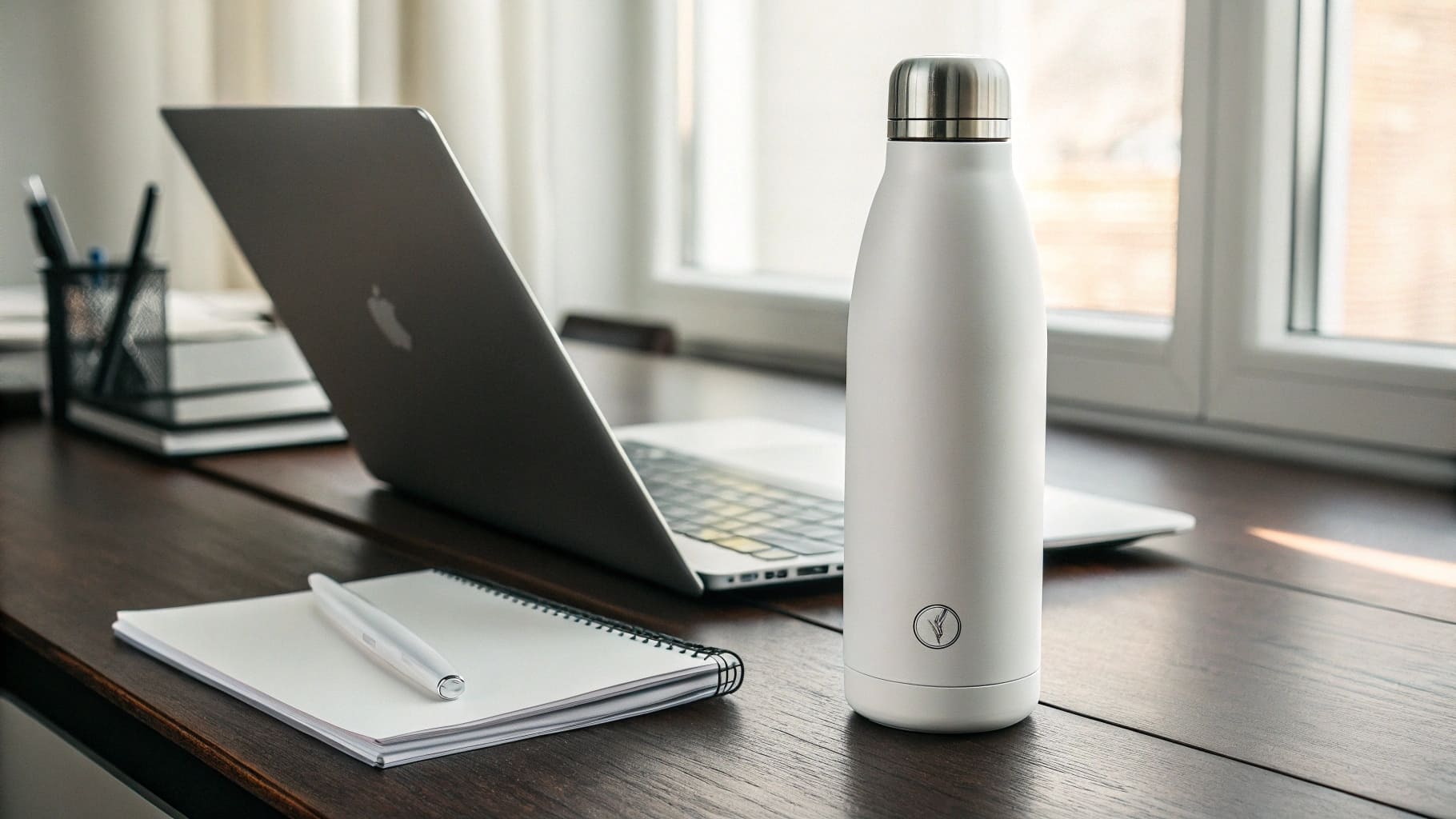
Quality is everything. This is especially true when you are rebranding products, like Mark does. You cannot afford to have your Canadian customers get a leaky bottle. Or one that does not keep drinks cold. At Icobottle, quality is our promise.
Key Steps for Quality Assurance
Follow these steps to make sure you get good quality:
- Detailed Product Specifications Sheet (PSS):
- This document is your guide. Be very, very specific.
- Material: Say the exact grade of stainless steel (e.g., 304 food-grade for the inside, 201 or 304 for the outside).
- Dimensions & Capacity: Give exact measurements.
- Lid Type & Seal: Describe the material, design, and if it needs to be leak-proof.
- Insulation Performance: For example, "Keeps liquids hot for X hours, cold for Y hours."
- Finish & Coating: Explain if you want powder coating or paint, and the exact color (use Pantone codes).
- Logo Application: State the method (like laser engraving or silk screen), size, and where it goes.
- Packaging: Detail the individual box and the master carton.
- Pre-Production Samples (PPS):
- Always get a PPS made to your exact specifications. You must approve this sample before mass production starts. This helps find any misunderstandings early.
- During Production Checks (Optional but Good for Large Orders):
- For big orders, think about an inspection when 20-30% of the goods are made. This can find problems before the whole batch is wrong.
- Pre-Shipment Inspection (PSI):
- This is very important. Hire a good third-party inspection company in China (like QIMA, SGS, or Bureau Veritas). They will check a random sample of your products. They will compare them to your PSS and an AQL (Acceptable Quality Limit) you agree on.
- They will look for problems in how the products look, work, are made, and packaged. This is a must for someone like Mark who is very careful about quality.
- I always tell my clients, "Do not skip the PSI. It is your last chance to find problems before the goods leave China." It costs a little but gives a lot of peace of mind.
A few years ago, a client was very specific about the shade of blue for their bottles. They gave us the Pantone code. But the first sample was a little off. Because we had a clear PSS and they insisted on approving the PPS, we were able to fix it. If they had not, they would have received thousands of bottles in the wrong color.
How do you handle certifications and avoid fraud when buying from China?
Is navigating certifications confusing for you? Are you scared of fake certificates or products that do not meet standards? Understand key certifications and how to check them to import safely.
Handle certifications by asking your supplier for needed documents like FDA, LFGB, or CE. Check if they are real with the organization that issued them. Be careful if suppliers are slow to give them.
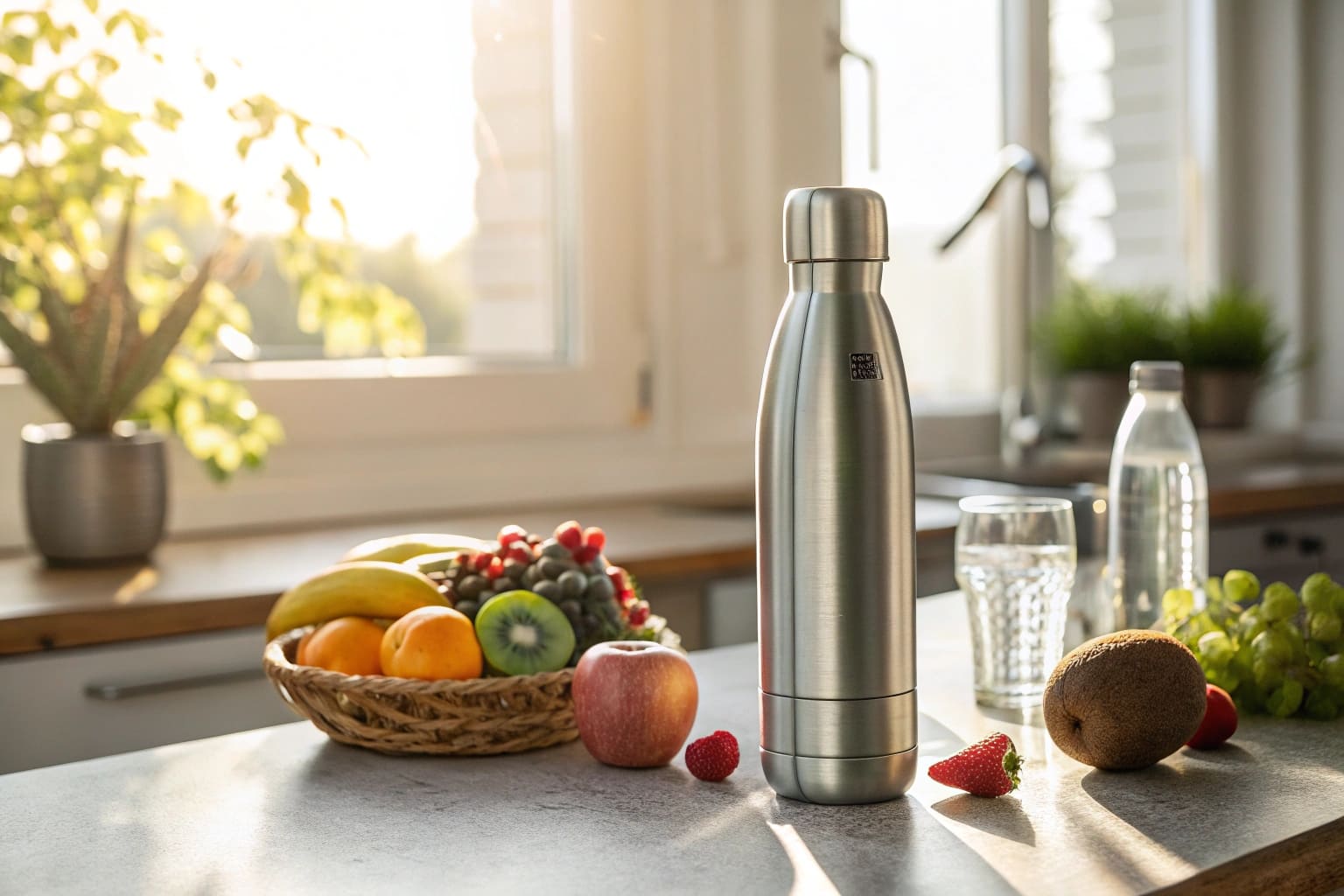
Certifications are a big deal. They are especially important for products that touch food and drink. For Mark importing to Canada, and for us exporting to America and Europe, following the rules is essential. One of Mark's worries is certificate fraud, so this is very important.
Common Certifications for Stainless Steel Bottles:
Here are some usual certifications:
- FDA (Food and Drug Administration - USA): This makes sure materials are safe for food. If you sell in the US, you need this.
- LFGB (Lebensmittel-, Bedarfsgegenstände- und Futtermittelgesetzbuch - Germany/EU): This is like FDA, but for the European market. People often think it is stricter.
- CE Marking (Conformité Européenne - EU): This shows a product meets health, safety, and environmental standards for products sold in the European Economic Area (EEA). It might be less for the bottle material itself, but can be important for some features or if it is part of a set.
- BPA-Free: Stainless steel itself is BPA-free. But make sure plastic parts like lids are also certified BPA-free.
- ISO 9001: This is a quality management system certification for the factory itself, not the product. It shows they have processes for quality.
How to Verify and Avoid Fraud:
Here is how to check certificates and avoid fakes:
- Request Copies: Ask the supplier for copies of all important certificates.
- Check Validity:
- Look for the name and contact information of the organization that issued the certificate.
- Many testing labs (like SGS, TUV, Intertek) have websites where you can check certificate numbers. If not, contact them directly.
- Look at the certificate's expiry date. Also, check what specific products or materials it covers. A general factory certificate might not cover your exact bottle.
- Be Wary of Red Flags:
- Suppliers who do not want to give certificates.
- Certificates that look like they were poorly photoshopped or changed.
- Certificates from unknown labs or labs that are not officially recognized.
- Third-Party Testing: If you are not sure, or for orders that cost a lot, think about having your products tested by a good lab yourself. This is the best way to be sure.
I remember a time when a new buyer got a very low price offer from a different factory. They showed us the "LFGB certificate" they got. It was clearly fake. The lab listed on it did not even exist. Luckily, they checked with us before they placed the order. It really helps to be careful.
What are the key logistics and payment considerations for Chinese bottle imports?
Do shipping and payments seem complicated? Are you worried about hidden costs or lost shipments? Understand Incoterms, shipping options, and secure payment methods for smooth transactions.
Key things to think about include choosing the right Incoterms (like FOB, CIF). Select sea or air freight based on how urgent it is and how much it costs. Use secure payment methods like Telegraphic Transfer (T/T) with a deposit.
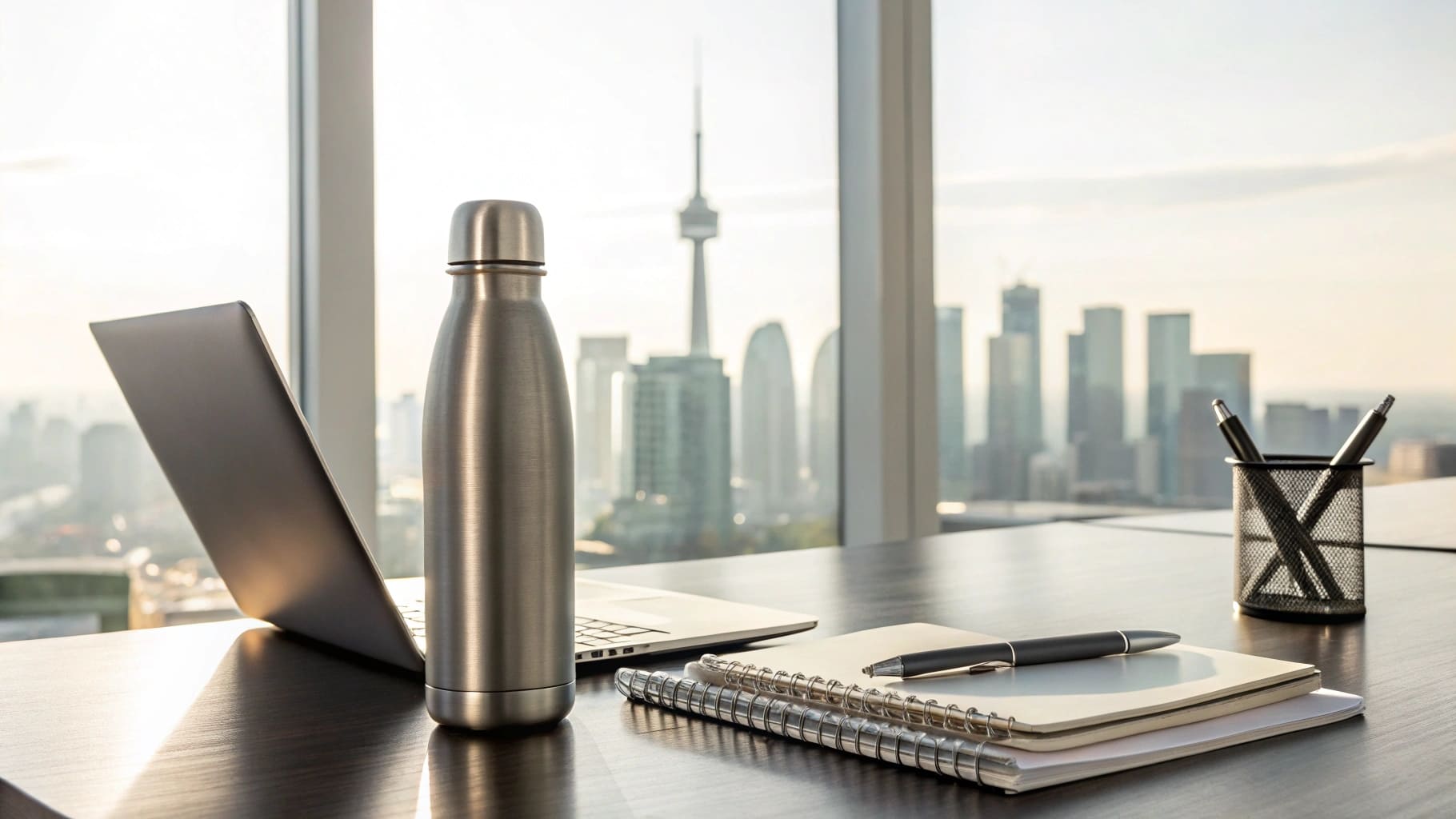
Getting your stainless steel bottles from our factory in China to your warehouse in Canada, America, or Europe involves several steps. Mark's concern about shipments being late and missing peak sales seasons is very real.
Understanding Logistics:
Here is what you need to know about shipping:
- Incoterms: These are international commercial terms. They define who is responsible for what between the buyer and seller for shipping, insurance, and customs.
- FOB (Free on Board): We, the seller (Icobottle), deliver goods to the agreed port of shipment in China. You, the buyer (Mark), are responsible for sea freight, insurance, and import steps from that point. This is very common.
- CIF (Cost, Insurance, and Freight): We arrange and pay for shipping and insurance to your destination port. You handle import customs and delivery from the port.
- EXW (Ex Works): You pick up the goods from our factory. You handle all shipping and export/import steps. This gives you the most control but also the most responsibility.
Talk about these with your supplier to find what works best for you.
- Shipping Methods:
- Sea Freight: This is most common for large orders because it costs less. It takes longer (for example, 3-6 weeks to North America or Europe).
- FCL (Full Container Load): Use this if your order is big enough to fill a 20ft or 40ft container.
- LCL (Less than Container Load): Your goods share container space with others. It costs a bit more per unit than FCL.
- Air Freight: This is faster (days instead of weeks) but much more expensive. It is good for urgent samples or small, high-value orders.
- Sea Freight: This is most common for large orders because it costs less. It takes longer (for example, 3-6 weeks to North America or Europe).
- Freight Forwarder: I highly recommend using one. A good freight forwarder will handle booking, documents, customs clearance. They can also tell you the best routes and Incoterms. Mark probably uses one.
Secure Payment Methods:
Here are some safe ways to pay:
- Telegraphic Transfer (T/T): This is the most common way. Usually, you pay a 30% deposit to start production. Then you pay the 70% balance before shipment (often after a successful pre-shipment inspection).
- Letter of Credit (L/C): This is very secure for both sides, but it is more complex and costs more. It is usually used for very large orders.
- PayPal/Alibaba Trade Assurance: These are good for smaller orders or samples. They offer some protection for buyers.
We had a customer whose shipment was delayed because a port was very busy. Because we used a reliable freight forwarder, we were able to get updates quickly. We could then manage the client's expectations. Clear communication during logistics is very important.
Conclusion
Importing bottles from China offers great opportunities for your business. Follow these steps, communicate clearly with your partners, and choose reliable suppliers like Icobottle for your success.

